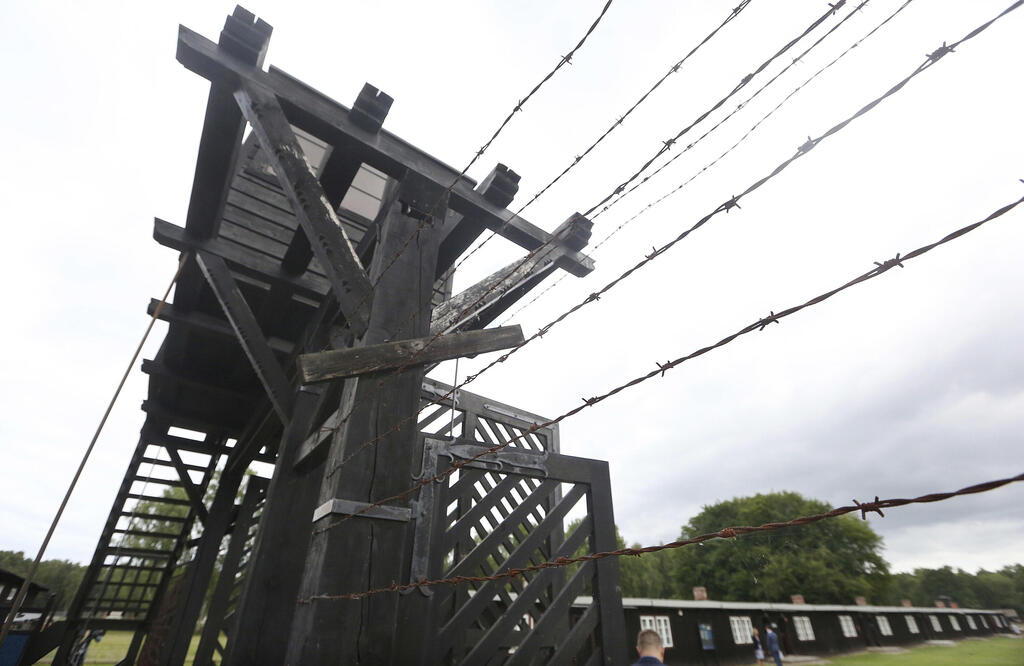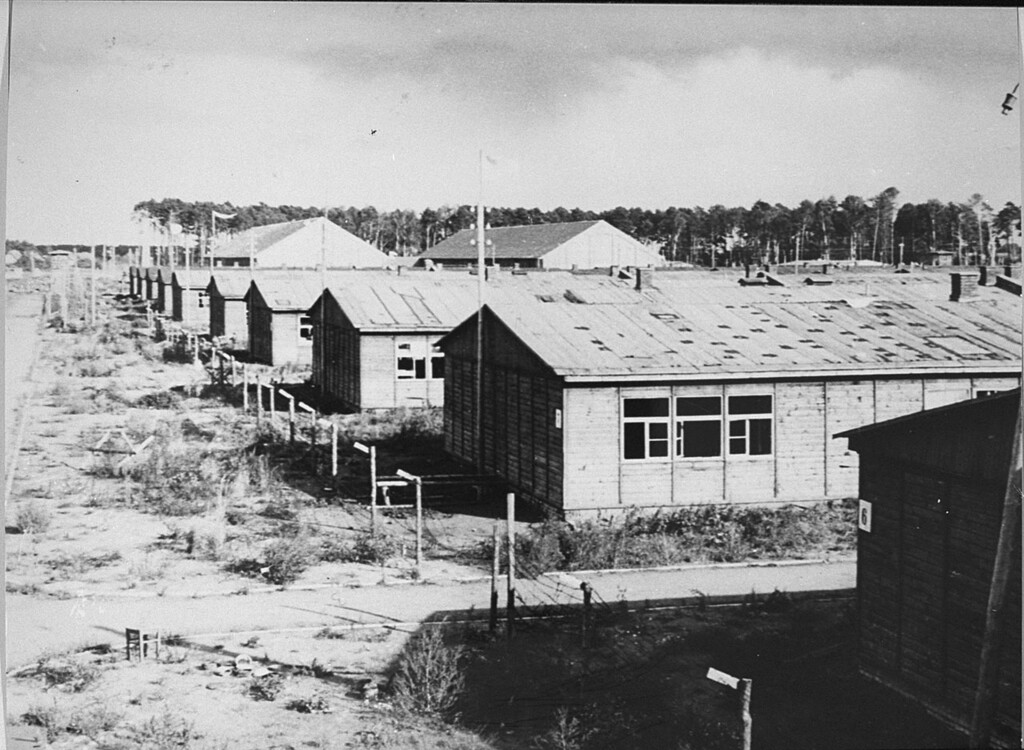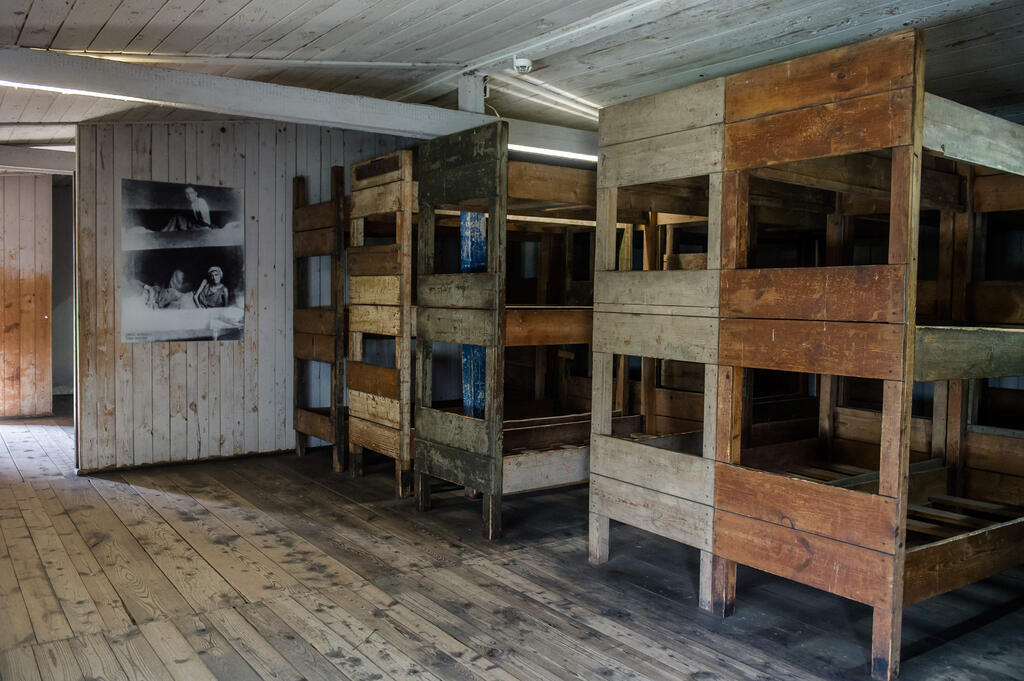A 96-year-old former secretary for the SS commander of the Stutthof concentration camp is going on trial Thursday in Germany on charges of more than 11,000 counts of accessory to murder. Prosecutors argue that she was part of the apparatus that helped the Nazi camp function more than 75 years ago.
The state court in Itzehoe in northern Germany said in a statement that the suspect allegedly “aided and abetted those in charge of the camp in the systematic killing of those imprisoned there between June 1943 and April 1945 in her function as a stenographer and typist in the camp commandant’s office.”
3 View gallery


The wooden main gate leading into the former Nazi German Stutthof concentration camp in Sztutowo, Poland
(Photo: AP)
Despite her advanced age, the German woman will be tried in juvenile court because she was under 21 at the time of the alleged crimes. The defendant has been widely identified by German media as Irmgard Furchner.
The case against Furchner will rely on German legal precedent established in cases over the past decade that anyone who helped Nazi death camps and concentration camps function can be prosecuted as an accessory to the murders committed there, even without evidence of participation in a specific crime.
A lawyer for the defendant told Der Spiegel magazine that the trial would center on whether the 96-year-old had knowledge of the atrocities that happened at the camp.
“My client worked in the midst of SS men who were experienced in violence — however, does that mean she shared their state of knowledge? That is not necessarily obvious,” Wolf Molkentin said.
According to other media reports, the defendant was questioned as a witness during past Nazi trials and said at the time that the former SS commandant of Stutthof, Paul Werner Hoppe, dictated daily letters and radio messages to her. Still, Furchner testified she was not aware of the killings that occurred at the camp while she worked there, the German news agency dpa reported.
Initially, a collection point for Jews and non-Jewish Poles removed from Danzig — now the Polish city of Gdansk — Stutthof from about 1940 was used as a so-called “work education camp” where forced laborers, primarily Polish and Soviet citizens, were sent to serve sentences and often died.
From mid-1944, tens of thousands of Jews from ghettos in the Baltics and from Auschwitz filled the camp, along with thousands of Polish civilians swept up in the brutal Nazi suppression of the Warsaw uprising.
Others incarcerated there included political prisoners, accused criminals, people suspected of homosexual activity and Jehovah’s Witnesses.
More than 60,000 people were killed there by being given lethal injections of gasoline or phenol directly to their hearts, or being shot or starved. Others were forced outside in winter without clothing until they died of exposure, or were put to death in a gas chamber.
In a separate case, a 100-year-old man is going on trial next week in Brandenburg for allegedly serving as a Nazi SS guard at a concentration camp just outside Berlin during World War II.
The man, whose name wasn’t released in line with German privacy laws, is charged with 3,518 counts of accessory to murder. The suspect is alleged to have worked at the Sachsenhausen camp between 1942 and 1945 as an enlisted member of the Nazi Party’s paramilitary wing.



